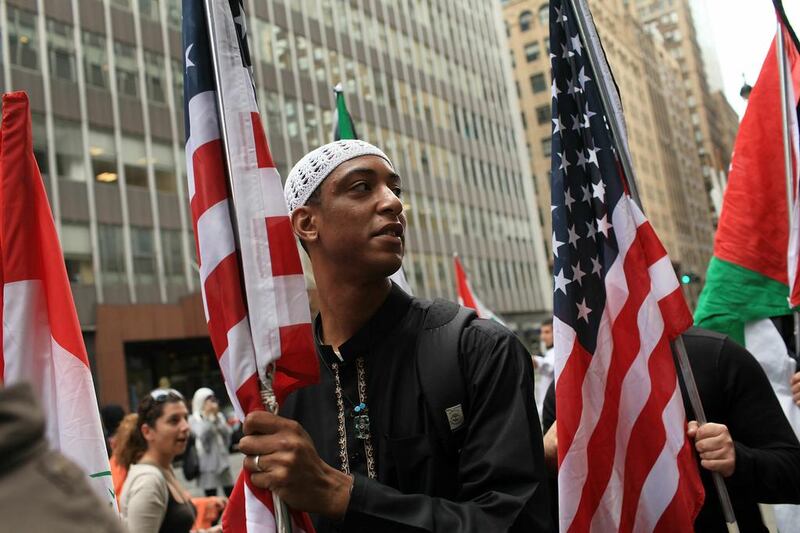‘Egypt killed Islam in the West” was the provocative title of an essay last month in an American journal by HA Hellyer, an academic and contributor to these pages.
In a complex argument, subsequently debated by The Economist and rebutted by Tariq Ramadan, professor of Islamic Studies at Oxford, Hellyer looks at the divisions in western Muslim communities through the lens of Egypt’s post-revolution transition.
Some of the divisions apparent in Egypt’s intellectual circles – over how to respond to post-Mubarak army rule, the victory of the Muslim Brotherhood and the subsequent election of Abdel Fatah El Sisi – have been mirrored, he writes, among western Muslim communities, with many keen to take sides in the debate.
Hellyer laments this, arguing that western Muslims could, following in the tradition of Islamic scholars of previous centuries, better “speak truth to power” if they were non-partisan and spoke of the misdeeds of both sides.
That, he concludes, would be a valuable service for their co-religionists in the Muslim world.
The role of western Muslims in the affairs of Muslim-majority countries is an important one (as, of course, is the reverse).
But that relationship is complicated by the West itself. The US and the UK, in particular, are not simply places where Muslims live – they are direct participants in much of the politics of the Middle East, Egypt included.
These countries are both actors in the Muslim world and in their own Muslim communities.
At home, they can offer status or censure to their Muslim citizens, can provide funding, political support or criminalise behaviour. Abroad, their power and their militaries play a significant role in the Middle East. The politics of the West, then, has a direct impact on the politics of Muslims in the West.
It is not sufficient then, when assessing what western Muslim communities do or do not say, to assume that they are entirely free to speak without consequence.
On the contrary, one must assess what Muslim communities there say in the context of what they can say; what the parameters of debate are for Muslims in the West.
Take America as an example, although the same applies to other western countries.
On the one hand, the US wants its Muslim citizens to speak out: it wants them to support its foreign policies andits domestic policies (on surveillance and terrorism, for example).
But it only wants them to speak out if they are supportive of the particular policies of the particular political party in power. Too often, when western politicians solicit the opinion of their domestic Muslim communities, they only want to hear the word “Yes”.
At the same time, there is a very real fear in the West that Muslim citizens will vote to change some of the West’s long-standing policies in the Middle East.
That would be a legitimate thing for citizens of any country to do, but it indicates the complicating factor about how Muslim communities are treated.
In democracies, having the possibility of a bloc vote from “Muslim” communities is a tempting prospect for politicians. Hence the rise of “Muslim” politics. But that also skews the role of Muslims as citizens first and people of faith second.
It turns out, in fact, that far from being a straightfoward question of what Muslim communities say, there are considerable expectations about what they should and should not say and what they can and cannot say.
The racist suggestion periodically raised – that American Muslims must condemn acts committed by citizens of other nations, simply because they are Muslims – is one facet of this.
It is impossible to separate the expectations of a particular political climate from what communities actually say publicly in that climate.
One example Hellyer offers in his essay is of those who supported the victory of Mohammed Morsi in the 2012 election.
But not everyone who supported it did so because they liked the Brotherhood. Some were supportive because of the manner in which that victory came about – they supported the process of democracy but not the party that won.
That same consideration of context needs to occur when assessing what Muslim political activists – particularly those who face hostile media in their own countries – say about events in the Middle East.
In the current climate, those who aspire to speak for Muslim citizens in many western countries must be politicians first, spokespeople second. The truths that they speak to power must, too often, be calibrated to the powerful of their countries.
falyafai@thenational.ae
On Twitter: @FaisalAlYafai





